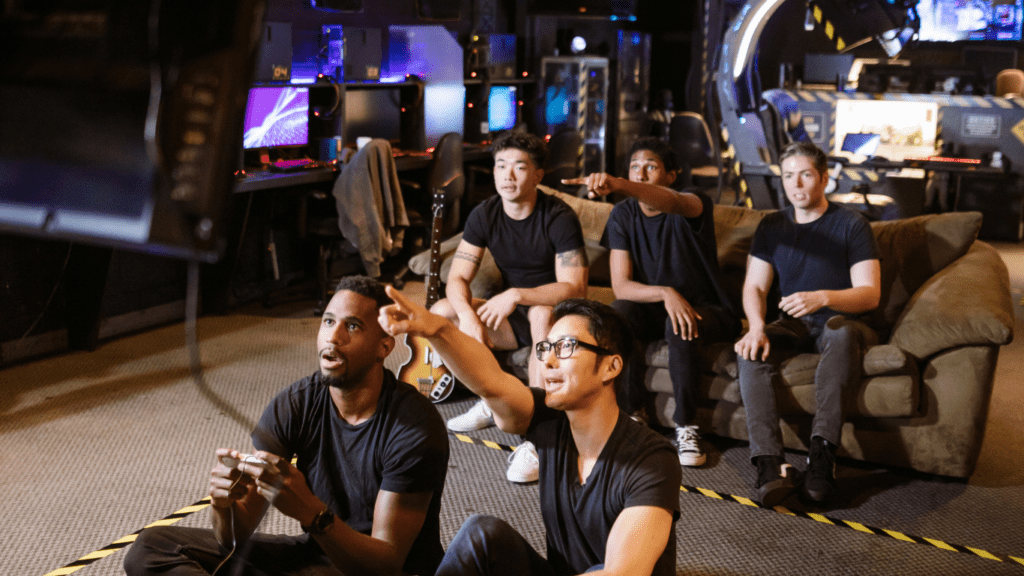Exploring the Importance of Diversity and Inclusion in the Gaming Industry
The Current State of Diversity in Gaming
The gaming industry has made strides in recent years in improving diversity.
Prominent companies like Electronic Arts and Ubisoft have started initiatives to include more diverse characters and storylines.
According to a 2021 International Game Developers Association (IGDA) report, 19% of game developers identified as female, up from just 11% in 2009.
Diverse representation in game characters has also increased, with characters like Aloy from “Horizon Zero Dawn” and Ellie’s girlfriend Dina in “The Last of Us Part II” highlighting this progress.
However, there’s still much to be done. Many top gaming companies face criticism for lacking diversity in their executive teams.
The same IGDA report noted that only 2% of game developers identified as Black.
This underrepresentation can affect the authenticity and variety of the stories told in games, as creators from diverse backgrounds bring unique perspectives and cultural insights.
Why Inclusion Matters to Players and Developers
Inclusion enriches the gaming experience for players by reflecting a broader spectrum of human experiences.
Players feel more connected to games when they see themselves represented.
This connection can drive player engagement and loyalty. Examples like the positive reception of games with LGBTQ+ characters, such as “The Sims” series and “Life is Strange”, demonstrate the importance of inclusive gaming narratives.
For developers, inclusive work environments foster creativity and innovation.
Diverse teams bring a plethora of ideas and solutions, which leads to more unique and compelling games.
According to McKinsey & Company’s “Diversity Wins” report, companies with higher gender diversity on executive teams are 25% more likely to have above-average profitability.
Similarly, those with ethnic and cultural diversity have a 36% better chance of outperforming their peers.
These statistics suggest that diversity isn’t just a moral imperative but a business case as well, especially in the competitive realm of the gaming industry.
Challenges to Achieving Diversity in the Gaming Industry
Systemic Barriers and Biases
Systemic barriers and biases hinder diversity in gaming companies.
These barriers are rooted in long-standing hiring practices that favor certain demographics, leading to homogeneous teams.
Educational institutions and training programs also contribute by not equally promoting opportunities for minorities.
Biases manifest in recruitment and career advancement within the industry.
For example, hiring managers often favor candidates with similar backgrounds, unintentionally excluding diverse talent.
This exclusion creates a cycle where diverse candidates find fewer role models and mentors, perpetuating the lack of diversity.
The Economic Impact of Lack of Diversity
Lack of diversity affects a company’s economic performance.
Research shows that diverse teams are more innovative and produce better financial results.
Companies in the gaming industry risk missing new market opportunities if they don’t embrace diversity.
The cost of low diversity includes reduced market competitiveness.
Diverse teams bring varied perspectives that can lead to unique gaming experiences appealing to a broader audience.
A lack of diversity limits creative potential, resulting in games that may not resonate with diverse players, ultimately impacting sales and player engagement.
| Factor | Impact |
|---|---|
| Homogeneous Teams | Hinder innovation and limit perspectives |
| Exclusion of Diverse Talent | Reduces pool of potential creative ideas |
| Economic Performance | Diverse teams lead to better financial results and market opportunities |
| Market Competitiveness | Improved by diverse perspectives and unique gaming experiences |
Case Studies: Success Stories in Inclusive Gaming

Example of Inclusive Games and Their Impact
Several games have set benchmarks in inclusivity, making significant impacts on both the gaming community and society.
The Last of Us Part II from Naughty Dog features a lesbian protagonist, Ellie, and offers a narrative that resonates with diverse audiences.
The game won numerous awards and received critical acclaim for its storytelling and representation.
Life Is Strange, developed by Dontnod Entertainment, includes LGBTQ+ characters and addresses issues like bullying and mental health.
This game’s inclusive approach has resonated with players, contributing to its commercial success and cultural impact.
Another notable example is Celeste by Matt Makes Games, which features a trans character and tackles mental health themes.
The game received praise not only for its gameplay but also for its sensitive portrayal of mental health struggles, influencing both players and developers to embrace more inclusive storytelling.
Companies Leading the Way in Diversity
Several companies have emerged as leaders in promoting diversity within the gaming industry.
- Electronic Arts (EA) has implemented numerous initiatives promoting workplace diversity.
Their inclusion framework ensures diverse representation in both their workforce and game content, enhancing overall creativity and relatability. - Ubisoft has taken substantial steps toward inclusivity by creating the Diversity and Inclusion Task Force.
This task force aims to address biases and promote equity within the company.
Their games, such as Assassin’s Creed, often showcase diverse characters and storylines, reflecting their commitment to inclusivity. - Riot Games has also prioritized diversity by implementing comprehensive diversity programs and incorporating diverse characters in their games like League of Legends.
Their approach includes transparent hiring processes, inclusive leadership training, and employee resource groups to support underrepresented communities.
These companies set industry standards by actively promoting diversity in both their corporate structures and game development processes, fostering environments that encourage innovation and cultural representation.
Strategies for Promoting Inclusion in Gaming
Hiring Practices and Workplace Culture
Fostering diversity in the gaming industry starts with inclusive hiring practices.
Companies can promote job openings through diverse channels to reach underrepresented groups.
I’ll ensure interview panels are diverse, giving candidates different perspectives and fostering an inclusive environment from the beginning.
Implementing bias training for all employees further supports this goal by raising awareness and promoting fair treatment.
Workplace culture also plays a crucial role.
Developing Employee Resource Groups (ERGs) for various demographics, like LGBTQ+ and women, provides safe spaces and encourages participation.
I can facilitate mentorship programs to support career development for underrepresented employees, fostering an inclusive culture.
Regularly reviewing and updating company policies ensures they reflect diverse needs and promote equity.
Community Engagement and Supportive Policies
Engaging with gaming communities broadens the impact of diversity and inclusion efforts.
Hosting events, like panels and webinars featuring diverse voices, helps raise awareness and foster a more inclusive community.
I encourage companies to support diverse content creators by promoting their work and providing opportunities for collaboration.
Implementing supportive policies is vital in maintaining long-term inclusivity.
Clear codes of conduct for online interactions help reduce harassment and create a safer environment for all players.
Moderation teams should receive training to identify and address discriminatory behavior, ensuring a respectful and inclusive gaming experience. Additionally, continuous feedback loops with the community help identify new issues and adapt policies to evolving needs.
These strategies collectively contribute to a more diverse and inclusive gaming industry, promoting innovation and resonating with a broader audience.


 Charlie Bracegirdle seamlessly combines his passion for gaming with his role at Infinity Game Saga, where he is both a dedicated gamer and a prominent content creator. As an integral member of the team, Charlie brings a wealth of experience and a deep understanding of the gaming industry to his work. His articles and content cover a broad spectrum of gaming topics, from detailed reviews and insightful industry analyses to the latest trends and upcoming releases.
Charlie’s unique perspective, shaped by his own extensive gaming experiences, allows him to engage with readers in a meaningful way. His writing not only informs but also entertains, providing a blend of professional insight and personal enthusiasm. Whether he's exploring new game mechanics, dissecting game strategies, or sharing his thoughts on the future of gaming, Charlie's contributions make a significant impact on the Infinity Game Saga community. Through his work, he bridges the gap between gamers and the evolving landscape of the gaming world, enhancing the experience for all who follow his updates and analyses.
Charlie Bracegirdle seamlessly combines his passion for gaming with his role at Infinity Game Saga, where he is both a dedicated gamer and a prominent content creator. As an integral member of the team, Charlie brings a wealth of experience and a deep understanding of the gaming industry to his work. His articles and content cover a broad spectrum of gaming topics, from detailed reviews and insightful industry analyses to the latest trends and upcoming releases.
Charlie’s unique perspective, shaped by his own extensive gaming experiences, allows him to engage with readers in a meaningful way. His writing not only informs but also entertains, providing a blend of professional insight and personal enthusiasm. Whether he's exploring new game mechanics, dissecting game strategies, or sharing his thoughts on the future of gaming, Charlie's contributions make a significant impact on the Infinity Game Saga community. Through his work, he bridges the gap between gamers and the evolving landscape of the gaming world, enhancing the experience for all who follow his updates and analyses.
